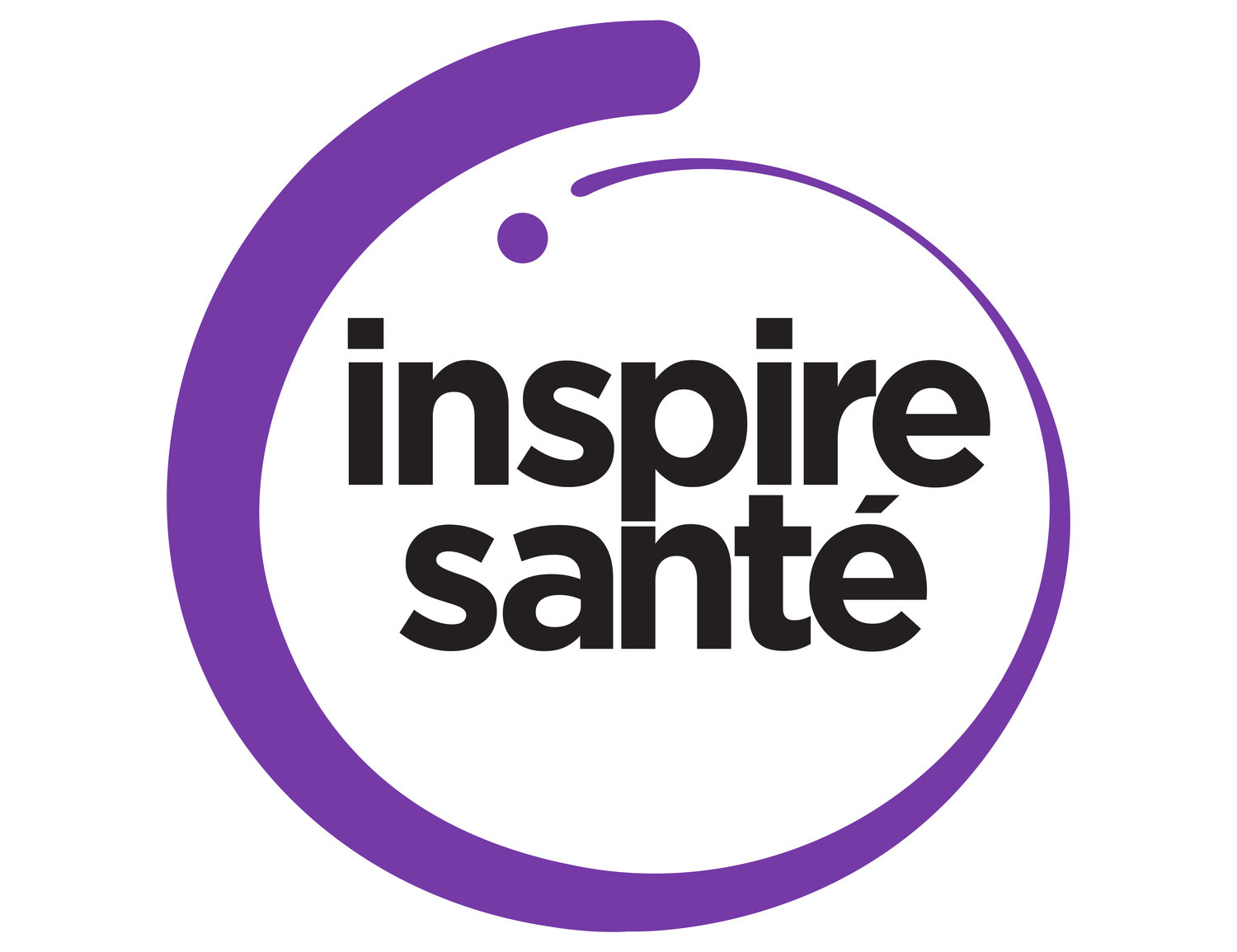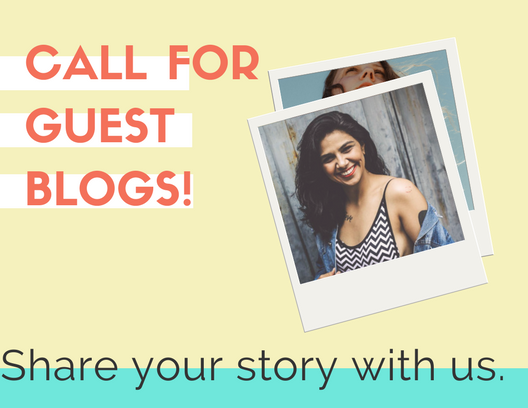My story got told without my consent, and it rocked me.
/Last weekend, I spoke at a conference about my experience with pelvic pain for the first time in two years. Before that, I’d been sharing my story far and wide – at conferences, in magazines, and online. One of the aspects of the patient experience that I’ve emphasized as being so crucial is the patient’s autonomy over and ownership of their body and their story. I highlighted the importance of this again last weekend, when I discussed how I draw boundaries around my story when sharing it with others. I don’t share everything, I keep some parts of myself and my experience private, and I don’t share the experiences of my loved ones – those belong to them.
So why the hiatus? Well, nearly three years ago, I did an interview with somebody writing a book about pain. I understood that it would help patients to feel more hopeful about their futures and would educate practitioners about the experience of pain. I thought my interview was informational at first, and because me and the interviewer shared some mutual friends and confidantes, I shared my public-facing and my private story. I knew the interviewer was going to write a little blurb about my personal story to include in the book. What I did not know is that the interviewer was going to write an entire book chapter about my story – in the first-person. The interviewer sent it to me for approval, and when I sat down to read it, I burst into tears. I wasn’t ready for what I was reading.
How could someone write my story as a first-person narrative? Who gave them that right?! And as someone whose goal was to help patients and emphasize the importance of patient stories, how could they be so presumptuous as to think that I’d be OK with someone ghost writing my story? I sat down several times, over the course of several months, to edit the manuscript. It took me hours per page to redact all of my private story (the part I don’t share with others, and deeply regretted sharing with the interviewer when I realized it had been committed to paper). It took me hours to rewrite things to be accurate – the interviewer had missed nuance, passage of time, and various other experiences. Reading my own story, written in the first-person, but in someone else’s voice was destabilizing for someone so early in their recovery. I felt violated, vulnerable, and unsure of myself in life at that time, and the way the narrative was drawn, I felt disempowered.
I sat on my terrace with my laptop one afternoon, determined to get through it, with tears streaming down my cheeks. My husband called to see if I wanted to grab lunch together, and he heard the distress in my voice. “Why don’t you just say no?,” he inquired. It hadn’t occurred to me. But I quickly told him that if I was going to say no, I should’ve done so months earlier. I’d dragged the whole thing out so long now that surely the interviewer had relied upon me. “It’s your story,’ he reminded me, “and nobody gets to take it from you – the good parts or the bad.” I thought about this, and about how alone I felt when I was at my lowest points. And I thought about my physical therapist’s continued insistence that the “magic” of my recovery was in me, not in any third party’s efforts to guide me back to health. And I was overcome by a fresh bout of tears. How dare the interviewer write my story in what purported to be my voice? I set it aside, determined to deal with it later, when my tears had dried.
As is so common with things we dread doing, I ignored it. I buried it deep in the bowels of my laptop and pretended it wasn’t there – that false version of my story, filled with deeply personal things I hadn’t shared before, inaccuracies, and misrepresentations of my experience. I pretended I hadn’t been briefly unraveled by that experience. And life went on.
One morning, I woke up to see that I’d been tagged in a Facebook post wherein the interviewer was sharing that the book had been published. A wave of shame washed over me, as I never did return the edited manuscript and never did communicate the issue. I sent the interviewer an email, apologizing for never returning it, expressing how deeply unsettling it had been, and apologizing that I hadn’t been ready for its inclusion in the book. I wished the interviewer success with the book. I felt like I’d let them down, and I felt embarrassed that I’d ignored the situation rather than dealing with it, presumably leaving them to simply omit my story, as they never received my edits or consent to publish.
The interviewer’s response left me shaking and in tears that my husband was helpless to interpret. The interviewer hadn’t realized I didn’t give the go-ahead on the story and had published it as-is. I quickly purchased the e-book and stared at the words published alongside my name and city. As a lawyer, as a human, as an advocate for patients – I was shocked. It’s illegal, yes, to use someone’s likeness or persona without their express permission. It’s a violation of academic and professional ethics to do what the interviewer did, yes. But more than that, and what so fiercely upset me, was that the book purported to help patients, while so obviously violating my autonomy over my story and my right to expressly GRANT permission to share my experiences. “How dare they?,” we asked ourselves again and again. It wasn’t my responsibility to say “no,” but the interviewer’s responsibility to obtain my express permission – a clear “yes” from me.
We’ve discussed this more recently, and we’ve talked about how indicative this is of the undercurrent in the #MeToo movement, of the importance of obtaining affirmative consent, and of never taking ownership of another person’s body or experience. Ultimately, the book was republished without my story. But the damage had been done to my psyche, and to my sense of safety around sharing my story. For nearly two years, I shut the hell up and stopped letting people into that experience. I stopped talking about it, and I stopped feeing like there was safety in sharing. My trust had been breached, and it was so destabilizing.
Another aspect of this experience was also very unsettling. During the interview phase, the interviewer asked several times to interview my husband about his experience. He staunchly declined, more than once. I expressed that I don’t discuss his experience with my pain – that’s simply not my story to share, and although I’ve decided to “go public” with some aspects of my experience, he is absolutely entitled to privately heal from those traumas. A few months later, the interviewer was moderating a panel I was on, where I was to discuss my experience with pain. Us panelists knew the questions in advance, and I was thrilled to be there. At the time, I either hadn’t read or hadn’t dealt with the book chapter (I can’t remember the timeline), but I had emphasized my belief in my husband’s ownership of his story. After all – we can’t discuss the importance of patients sharing and owning their stories while also taking ownership of others’ experiences. It’s crucial that people give their consent to having their experiences, traumas, and lives shared; nobody can tell your story but you. This is why famous people sell the rights to their stories – because our stories belong just to us! Anyway, while sitting on the panel, the interviewer asked me about my husband’s experience with my pain. I don’t remember how I responded at the time, but I remember feeling like a white noise machine had been switched on in my head. How does one respond when, on-stage at an event with microphone in hand, you’re asked a question you cannot and should not answer? I know I mumbled something, and I may have said something I later wished I hadn’t. I can’t stand to re-watch the video of that day, so I haven’t refreshed my memory, and it doesn’t matter at this point. But I couldn’t believe I was being asked about this again, after the interviewer knew that my husband had so emphatically declined to share his story, and I had declined to speak on his behalf. How could this person ask me about it in front of a room of people I respected and knew?
I’m back.
Last weekend @ BlogHer in LA.
When I stepped off the stage that day, I didn’t know it’d be two years before I stepped onto one again. I didn’t know that I’d need to work through the violation I felt from the experience of that panel and that book with my therapist in the coming years. I didn’t realize how much work I needed to do around articulating my boundaries, and how much I needed to develop my sense of ownership over my story. I was still weak, recovering, and desperate to be liked and seen as “healthy” at that time. Now, two years later, I know I’m healthy. And last weekend, at the BlogHer Health conference in L.A., I walked onto the stage in my stiletto boots feeling fierce and in control. And when the question about boundaries around our stories arose and was lobbed to me by the moderator, I discussed how we all own our stories, and we cannot share others’ experiences without their consent. The other women on the panel with me – all ferocious health warriors and advocates who I admire immensely – nodded their agreement and discussed the importance of checking in with our loved ones to ensure they remain OK with what we’re sharing. We need to obtain continued affirmative consent, because their stories are their own.
Today, I understand that my story is mine. I’m more guarded in the way that I share it now, and more selective about my words. I insist that it be told by me. I’ve recovered from that experience, I’ve learned from it, and I’ve become a better patient advocate because of it. Does that mean I’m glad it happened? Hell no. It disrupted my equilibrium at a time when my recovery was still a bit new and precarious. The interviewer’s conduct made me doubt my trust in the “good guys” of medicine, and made me wonder if anybody really understood the importance of resecting patients’ autonomy over their stories and decision-making. I don’t believe harm was intended, and I do believe that’s so often the problem – well-meaning people say well-meaning things without thinking them through, and they can erode the shaky foundations upon which people like me have rebuilt their sense of self.
While I’m not sure what my future storytelling looks like, I do know that nobody will be writing it for me.
My fierce co-panelists from last weekend.







